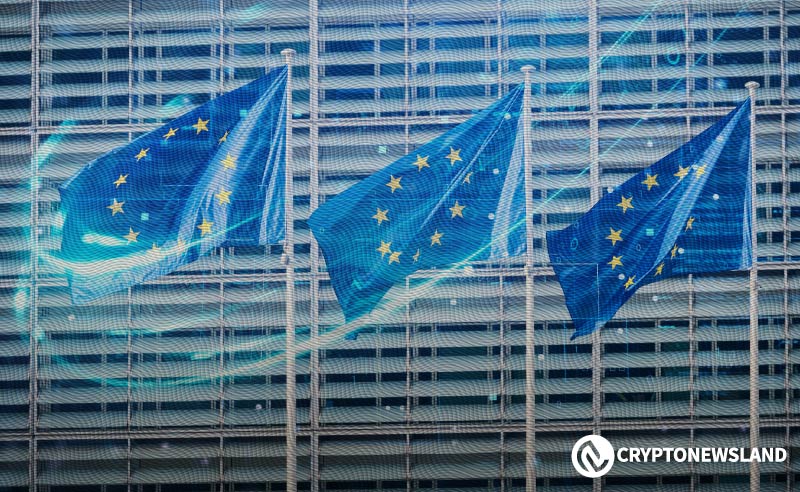- Hodl Topic
- Posts
- Trump’s “Crypto Czar” David Sacks Outlines Bold Plan for U.S. Crypto Leadership
Trump’s “Crypto Czar” David Sacks Outlines Bold Plan for U.S. Crypto Leadership
Hodl Topic, January 25th, 2025
🔥Heat Map:

🌍 Daily Crypto Market Overview
Global Stats:
Cryptocurrencies: 10.05M+
Exchanges: 780
Market Cap: $3.59T (-1.34%)
24h Volume: $111.41B (-44.77%)
Bitcoin Dominance: 57.85%
Ethereum Dominance: 11.1%
ETH Gas Price: 6.23 Gwei
Fear & Greed Index: 61 (Greed)
🪙 Top 5 Cryptocurrencies by Market Cap
Name | Price | 24h Change | Market Cap | 24h Volume |
|---|---|---|---|---|
Bitcoin (BTC) | $104,816.57 | -0.19% | $2.08T | $41.38B |
Ethereum (ETH) | $3,307.00 | -2.68% | $398.52B | $19.18B |
Tether (USDT) | $0.9998 | -0.01% | $139.31B | $85.50B |
BNB (BNB) | $685.17 | -0.33% | $97.62B | $1.53B |
Solana (SOL) | $250.43 | -5.33% | $121.87B | $5.92B |
🚀 Trending on DexScan:
CR7/SOL: $0.0004870 (+121%)
ETF/SOL: $0.004348 (+4998%)
Dean/SOL: $0.005404 (+5520%)
PUNK/SOL: $0.01171 (+7519%)
MAGA47/WETH: $0.0002383 (+4342%)
FROM OUR FRIENDS @ BYBIT
Sign up for a Bybit account and claim exclusive rewards from the Bybit referral program! Plus, claim up to $6,045 USDT bonus at https://www.bybit.com/invite?ref=Y5RNP7 or click the image below.
💹 Market Highlights:
Total DeFi Volume: $8.25B (7.41% of total 24h volume)
Stablecoins Volume: $100.22B (89.96% of total 24h volume)
Coin with Highest % Change: XPR (+50.46%)
📈 Preview On Today’s News:
- Trump’s “Crypto Czar” David Sacks Outlines Bold Plan for U.S. Crypto Leadership
- Wall Street CEOs Signal Bigger Crypto Push Under Trump Policies
- SEC Eases Crypto Rules for Banks, Boosting Market Potential
Keep reading below for more!
Today’s News:
1)
Trump’s “Crypto Czar” David Sacks Outlines Bold Plan for U.S. Crypto Leadership
David Sacks, appointed by President Trump as the U.S. “Cryptocurrency Czar,” has revealed an ambitious strategy to position the country as the global leader in digital assets. Sacks outlined the administration’s goals, including regulatory clarity, encouraging innovation, and creating a stable framework for cryptocurrencies. Key initiatives include defining market structures, supporting stablecoins to boost the U.S. dollar’s influence, and avoiding central bank digital currencies (CBDCs) due to privacy concerns. Sacks criticized the previous administration’s regulatory approach, expressing confidence in the U.S. catching up to global crypto leaders like Singapore. Trump's recent executive order formalizes these efforts, underscoring a private sector-driven approach.
The U.S. plans to establish regulatory clarity, support stablecoins, and reject CBDCs to foster innovation and maintain privacy in the crypto space.
The administration aims to position the U.S. as the leader in digital assets, with confidence in overcoming its lag behind countries like Singapore.
2)
Wall Street CEOs Signal Bigger Crypto Push Under Trump Policies
A CNBC report reveals that Wall Street's top executives are prepared to deepen their involvement in the cryptocurrency sector if favorable regulations emerge under the Trump administration. At the World Economic Forum in Davos, Morgan Stanley CEO Ted Pick and Bank of America CEO Brian Moynihan expressed optimism about clear regulatory frameworks facilitating broader crypto adoption. Trump, self-proclaimed as the "crypto president," has already initiated measures such as appointing a crypto-friendly SEC chair and forming a digital asset regulation team. With institutions like Morgan Stanley and Bank of America signaling readiness to expand their crypto offerings, the financial sector’s approach to cryptocurrency could shift significantly.
Wall Street CEOs, including leaders from Morgan Stanley and Bank of America, are prepared to expand crypto involvement if Trump delivers clear and favorable regulations.
Key measures, like appointing a crypto-friendly SEC chair and launching a regulation team, have bolstered optimism about increased institutional adoption.
3)
SEC Eases Crypto Rules for Banks, Boosting Market Potential
The U.S. Securities and Exchange Commission (SEC) has replaced the controversial SAB 121 rule with SAB 122, easing restrictions on how banks handle customer cryptocurrency holdings. Under the new rule, firms are no longer required to list customer crypto assets on their statements but must report risks when issues arise. This regulatory shift could encourage more banks to offer crypto services, responding to rising client demand. SEC Commissioner Hester Peirce hailed the change as positive for the cryptocurrency market, which could see growth as financial institutions embrace crypto offerings.
The SEC's new SAB 122 rule eliminates the requirement for banks to list customer crypto assets in financial statements, potentially increasing crypto services and accessibility.
Market sentiment is expected to improve as banks expand crypto offerings, with the rule change reflecting a regulatory push to support the growing cryptocurrency industry.
4)
ECB Pushes for Digital Euro to Counter U.S. Stablecoin Threat
The European Central Bank (ECB) is accelerating its plans to launch a digital euro to safeguard the eurozone's financial stability and competitiveness amidst the rising global influence of U.S. dollar-backed stablecoins. This move comes as stablecoins gain traction following a U.S. executive order endorsing their lawful adoption, raising concerns among European financial institutions about potential disruptions to traditional banking systems. The ECB envisions the digital euro as a centralized, ECB-backed digital currency that offers secure payments outside traditional banking but with limitations like capped balances to prevent destabilizing the banking sector. Despite concerns from banks about reduced deposits, the ECB views this initiative as critical to preserving Europe’s financial sovereignty.
The ECB is fast-tracking a digital euro to counter U.S. stablecoins, which threaten eurozone stability and banking systems by attracting funds away from European banks.
The proposed digital euro, backed directly by the ECB, aims to ensure financial sovereignty and global competitiveness while mitigating risks to traditional banking institutions.
5)
SEC Rescinds Crypto Custody Rule, Easing Regulatory Burden
The U.S. Securities and Exchange Commission (SEC) has repealed Staff Accounting Bulletin (SAB) 121, a controversial rule requiring financial firms to classify customer-held crypto assets as liabilities. Initially introduced in 2022, the rule faced widespread criticism from lawmakers and the crypto industry for imposing administrative burdens that hindered financial institutions from offering crypto custody services. Announced on January 23, the SEC's decision to rescind the rule, led by crypto advocate Commissioner Hester Peirce, has been celebrated as a step toward fostering crypto innovation and institutional adoption in the U.S.
SAB 121, which mandated firms to classify customer crypto assets as liabilities, faced backlash for hindering innovation and crypto custody services.
The SEC’s repeal signals a more favorable regulatory stance, paving the way for broader crypto adoption by financial institutions.
6)
Polymarket Faces Backlash Over TikTok Ban Prediction Outcome
Polymarket, a crypto-based prediction platform, has sparked controversy after resolving a $120 million market predicting a TikTok ban in the U.S. to “Yes.” The platform declared the market resolved on Jan. 20 after the U.S. Supreme Court upheld a law banning TikTok due to national security concerns. However, users criticized the decision, arguing TikTok remains accessible for most Americans following a temporary 75-day extension by the Biden administration. Accusations of manipulation emerged, with some calling the platform’s actions a “scam.” Polymarket relies on UMA’s Optimistic Oracle for dispute resolution, but critics claim the bypassing of its Data Verification Mechanism raises concerns about fairness.
Polymarket’s decision to resolve the TikTok ban market to "Yes" faced backlash, with users disputing the ban’s validity due to a temporary extension.
The use of UMA's Optimistic Oracle without full dispute escalation led to allegations of manipulation and renewed scrutiny of Polymarket's processes.
7)
CBI Cracks Down on Major Crypto Ponzi Scheme in India
India’s Central Bureau of Investigation (CBI) has raided over a dozen locations in connection to a significant crypto Ponzi scheme that defrauded investors by promising exorbitant returns. The operation led to the detention of more than six individuals across multiple regions, including Delhi and Madhya Pradesh, and the seizure of $39,000 in digital assets and 3.4 million INR in cash. This scheme falsely presented itself as a legitimate investment opportunity, exploiting the nation’s booming crypto adoption. India, which has topped global crypto adoption for two consecutive years, faces growing concerns over rising illicit crypto activities potentially hindering blockchain growth.
The CBI raided over a dozen locations, detaining six individuals, and seizing $39k in digital assets and 3.4 million INR tied to a crypto Ponzi scheme.
Rising crypto-related crimes in India, despite high adoption rates, raise concerns about stalling blockchain progress and regulatory challenges.
8)
MicroStrategy Faces $1.05B Redemption Amid Bitcoin Tax Scrutiny
MicroStrategy, the largest corporate Bitcoin holder with 461,000 BTC valued at $49 billion, has issued a redemption notice for $1.05 billion in convertible senior notes maturing in 2027. Investors can redeem their notes at full principal value or convert them into Class A shares at $142 per share by February 24. The move follows the company’s opposition to the Corporate Alternative Minimum Tax (CAMT), which could impose taxes on $19 billion in unrealized Bitcoin gains under the Inflation Reduction Act. While Bitcoin’s appreciation has boosted the firm’s investments by 68%, experts warn that volatility could threaten financial stability, sparking mixed reactions among shareholders.
MicroStrategy announced a $1.05B note redemption, offering note-holders conversion options as it confronts tax implications under the CAMT on $19B in unrealized Bitcoin gains.
With 461,000 BTC holdings and a 68% investment boost, the firm faces criticism over potential financial instability from Bitcoin’s volatility and heightened regulatory pressures.
9)
Vitalik Buterin Proposes Ethereum Upgrades to Enhance Scalability and Efficiency
Vitalik Buterin, co-founder of Ethereum, has unveiled a comprehensive plan to boost Ethereum’s scalability and efficiency through Layer 2 (L2) solutions and blob scaling. Buterin emphasized the need for wider adoption and interoperability of L2 networks to unify Ethereum’s ecosystem while advocating for technical upgrades, such as increasing blob counts, to expand transaction capacity and reduce costs. Highlighting the upcoming Pectra upgrade, he detailed plans to double the current blob processing capabilities, with long-term goals of implementing 128 blobs per slot, ensuring Ethereum remains secure and scalable for its growing use cases.
Buterin’s proposal prioritizes Layer 2 networks, interoperability, and blob scaling to unify Ethereum’s ecosystem and improve transaction efficiency.
Upcoming upgrades like Pectra aim to double blob capacity, with future goals of processing 128 blobs per slot, enhancing Ethereum's scalability and long-term sustainability.
10)
FINTRAC Issues Warning on Crypto Money Laundering in Drug Trafficking
Canada's Financial Transactions and Reports Analysis Centre (FINTRAC) has released an "Operational Alert" highlighting the rising use of cryptocurrencies in laundering proceeds from synthetic fentanyl and opioid trafficking. The warning, published on January 23, 2025, identifies red flags such as crypto-to-fiat conversions via new accounts, use of multiple wallets to obscure transaction origins, and deposits from high-risk regions. FINTRAC urged financial institutions and crypto service providers to integrate these findings into Anti-Money Laundering (AML) strategies. The warning aligns with global concerns, as recent reports reveal a 280% surge in crypto-facilitated laundering in 2024, totaling $1.3 billion, coinciding with Bitcoin's price doubling that year.
FINTRAC's alert highlights cryptocurrencies' increasing role in laundering proceeds from synthetic opioid trafficking, urging adoption of new AML strategies.
Reports show a 280% increase in crypto-related laundering in 2024, fueled by rising Bitcoin prices and sophisticated laundering tactics.
That’s all for today folks, see you tomorrow. 👋
Disclaimer
This newsletter (Hodl Topic, hodltopic.com) is based on our data and opinions, provided solely for informational purposes. It does not constitute financial advice. Cryptocurrency investments involve significant risks, so it’s essential to conduct thorough research and consult a qualified financial advisor before making any investment decisions. We are not liable for any financial gains or losses resulting from the use of this information.










